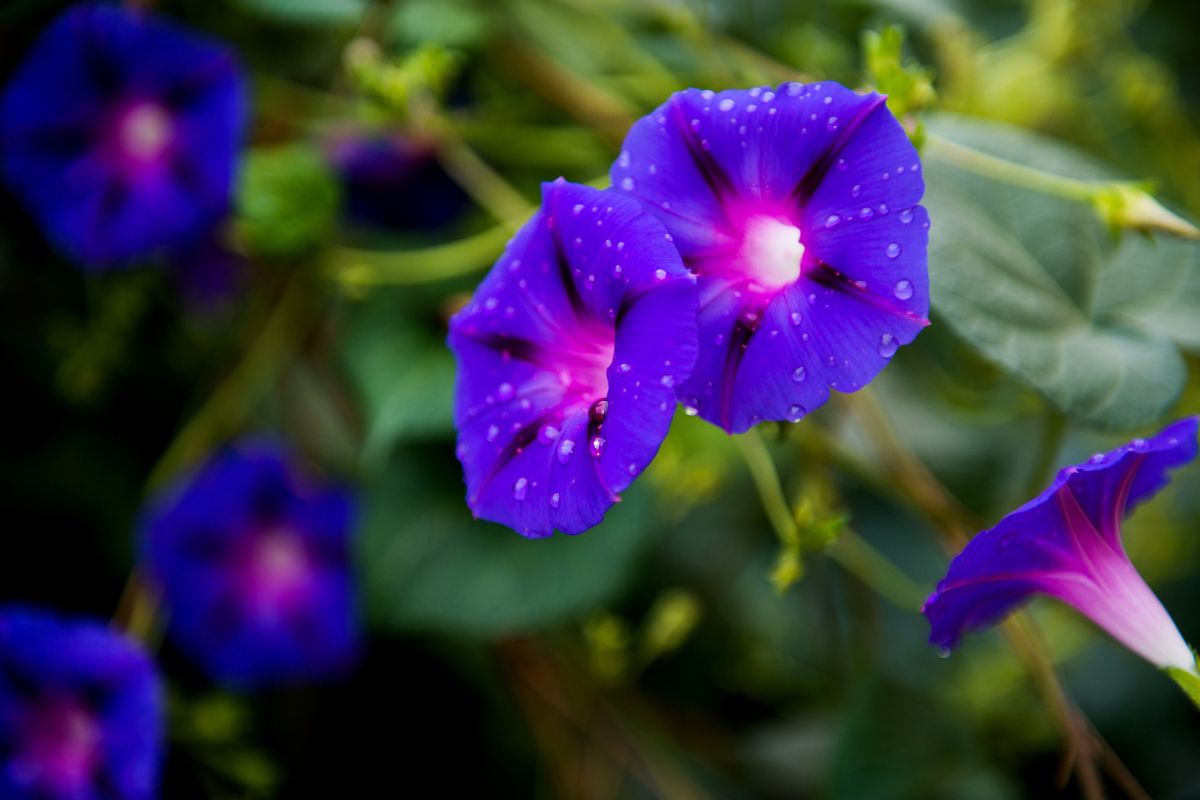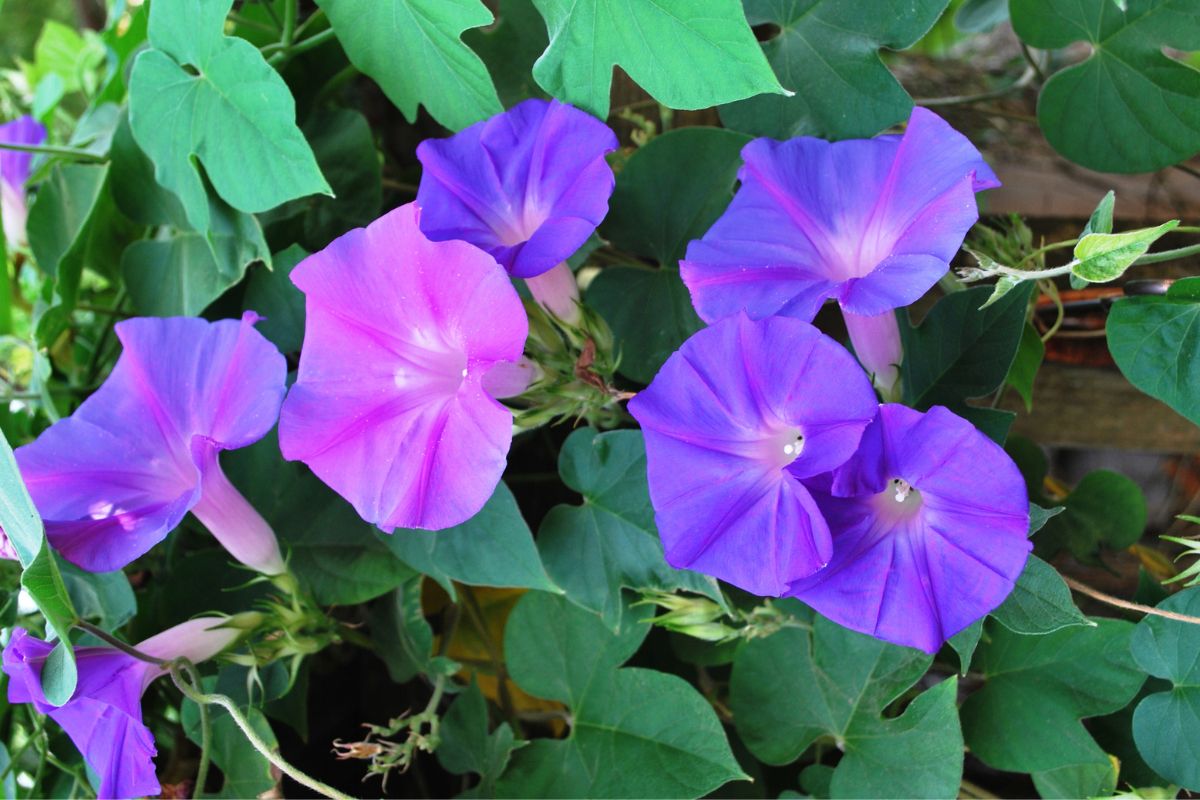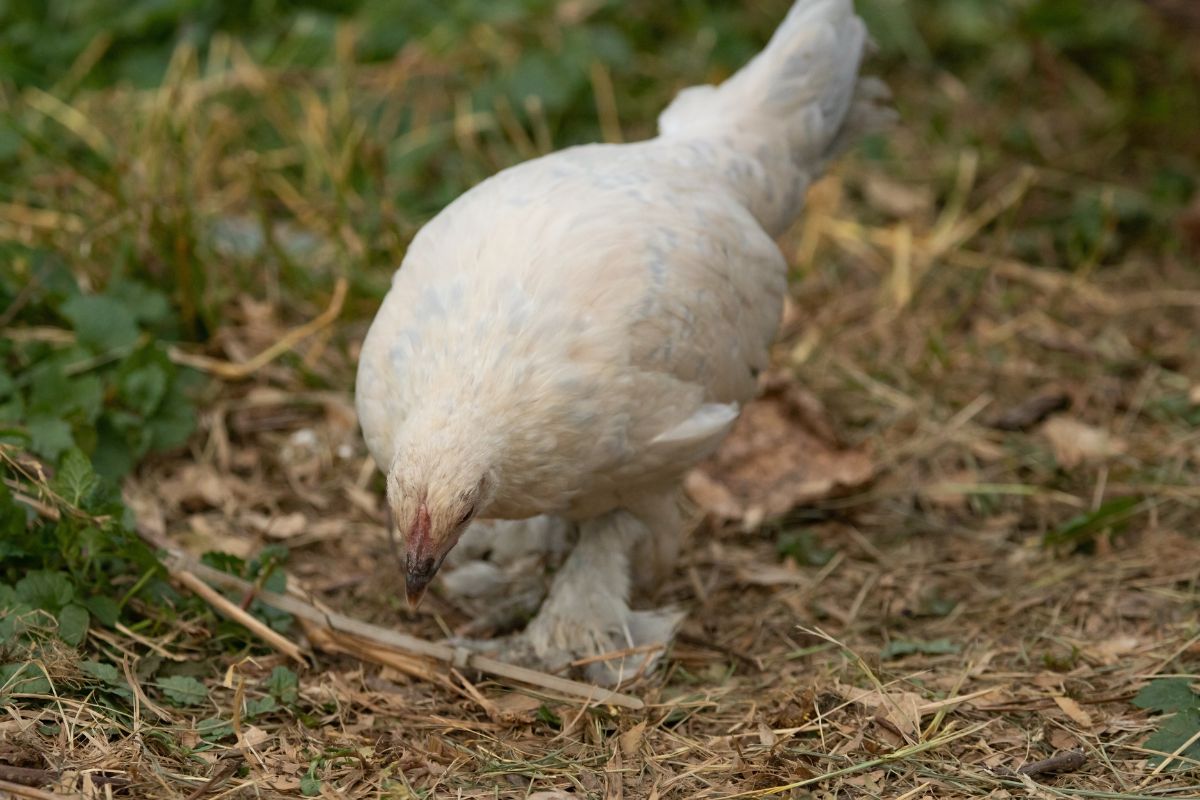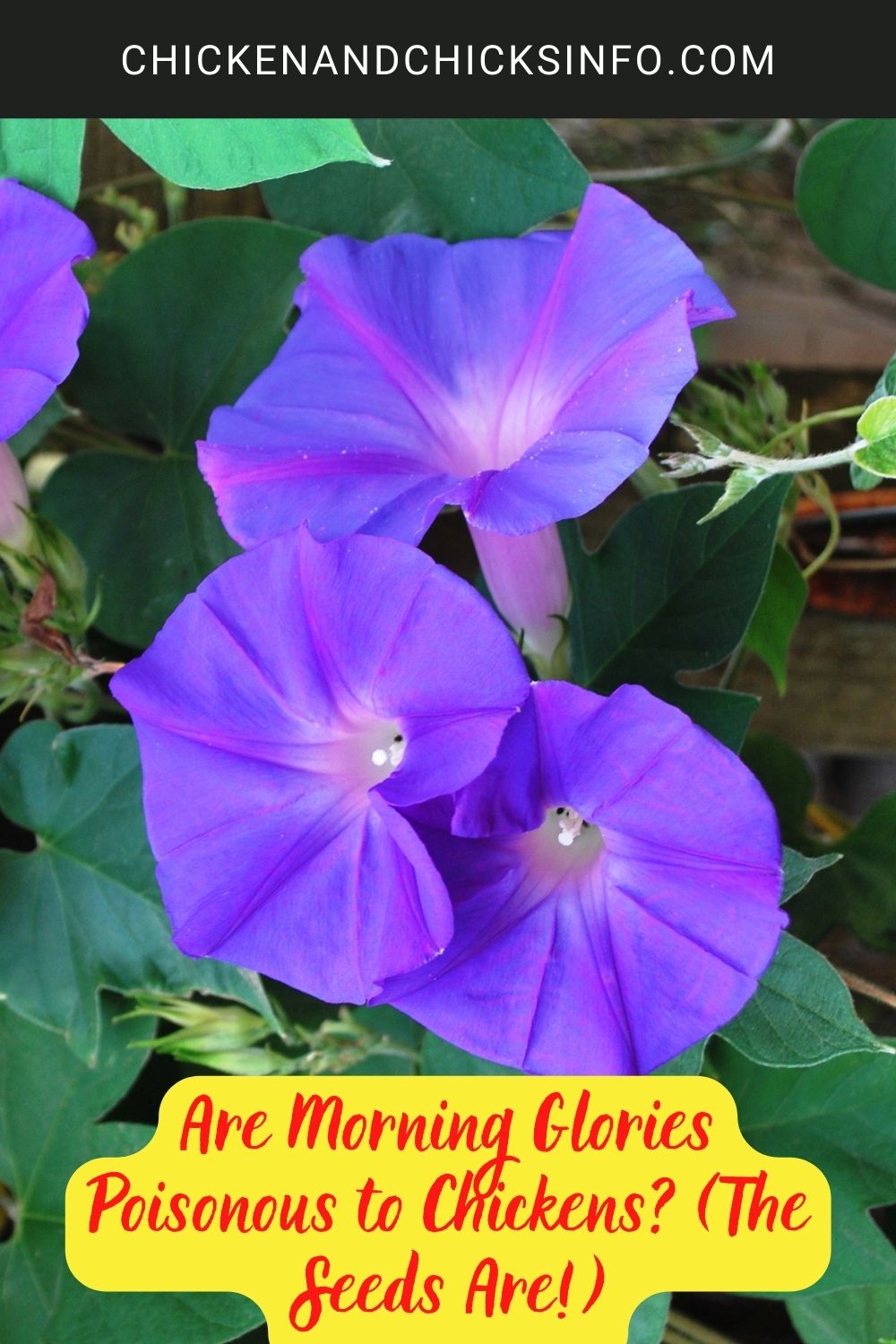
Morning glories are poisonous to chickens, yes. This plant contains chemicals that have a similar effect as LSD, and will cause anything from stomach upset and diarrhea to “water belly” and other serious health issues.
Jump to:
What Are Morning Glories?
Morning glories are colorful trumpet-shaped flowers with slender stems and large green leaves. They are climbers, and you’ll usually see them crawling up a pergola or archway.
They have a kind of romantic old-fashioned charm and are popular as they are fairly easy to grow and bring a lot of color and character to a yard.
The most popular color glories are purple-blue, magenta, and white. I’ve grown some myself over the years, so I know this plant well.
The seeds are highly toxic if ingested though, so you have to be cautious if you have chickens or any other pets that may ingest them.
Are Morning Glories Poisonous to Chickens?

Morning glories are poisonous to chickens, yes. The seeds that contain a naturally occurring tryptamine called Lysergic Acid Amide (LSA).
This compound is closely related to LSD. It acts as a hallucinogen and has mental effects if ingested, as well as causing other health-related issues for smaller pets.
Some Other Plants That Are Harmful to Chickens
I’ll be the first to say that morning glories are beautiful flowers. I’m a fan of growing colorful flowers and plants in my yard, and around my chicken’s coop in particular.
It’s vitally important, however, that you are aware of which plants are toxic to chickens. As well as any that may be poisonous, and those that are fine.
Because chickens will nibble on just about anything. So, you have to be sure they can’t come across anything that can cause them harm.
This is by no means a complete list, but here are some other plants that are known to be toxic to chickens:
- Bluebells
- Foxglove
- Daffodils
- Tulips
- Jimson Weed
- Azaleas
- Monkshood
- Amaryllis
- Tansy
- Nicotiana
- Nightshade
- Trumpet Vine
It’s surprising how many plants are potentially toxic. A lot of which we don’t even think about because we’d never consider ingesting them ourselves.
Free-range chickens on the other hand need to be protected from themselves! It’s advisable to make a note of all the plants growing in your yard and double-checking they’re safe.
Related - Read more about the risks of bluebells and wisteria in detail here.
Do Chickens Instinctively Know Which Plants Are Toxic?

I am constantly hearing and reading people state that chickens are natural foragers and they instinctively know what they can and can’t eat.
This simply isn’t 100% true.
Chickens will eat things that are toxic or poisonous to them without being aware. There isn’t a certain smell, feel, or look to all plants or foods that are toxic to them to warn them.
It’s true that chickens do seem to be aware of some of the foods and plants that might be bad for them.
But it’s not a sure thing, so it’s not worth the risk. Chickens are very sensitive to certain plants, such as morning glories, please do not assume they are smart enough not to eat them.
As I’m about to explain in the story below, there is always a risk that chickens will eat something they shouldn’t.
Related - Why chickens should stick to dandelions and dock leaves!
Plant Toxins and "Water Belly"
While researching this article, I spoke with the guys that run a local city farm where we live here as they usually have some insight into what’s good and bad for chickens.
They told me that a couple of years ago a couple of chickens ate a “decent amount” of morning glories that had fallen into their reach.
Apparently, the farmhands didn’t know morning glories might be toxic, but as a rule, they don’t let their chickens eat any plants or flowers. So, they were keen to point out they were eaten accidentally.
Anyway, a few months later those two chickens started suffering from ascites, which is also known as “water belly”.
Water belly is a condition that causes a chicken to have a bloated belly (hence the name). This happens because their bodies are not circulating oxygen fast enough, which stresses their liver, which in turn causes fluid to leak into their abdomen.
It’s not easy to treat or cure, and often results in death. So it’s a very serious condition.
They told me the vet told them one of the main causes of water belly is plant toxins. The only plant they knew any of their chickens ate - and it was these two - were those morning glories.
They are convinced morning glories were the cause, and now tell anyone who will listen that they’re toxic to chickens.
This is backed up by scientific evidence that the seeds of this plant contain harmful chemicals, so it’s not in doubt. It was interesting to hear some first-hand evidence, however, and a bit of an eye-opener.
In Summary
If this information has raised awareness for just one person who was not aware of the possible dangers of morning glories - it’s been worth the time.
It’s easy to forget about all the potential dangers to chickens that are all around us. Some of which are disguised as colorful and beautiful looking plants!
Resources
Are morning glories poisonous? - Poison.org
Morning glory - Azarius.net





